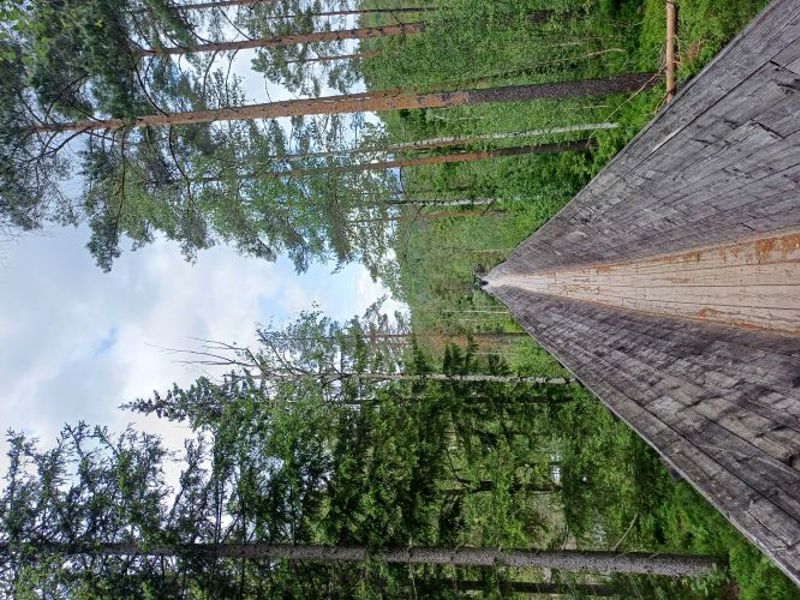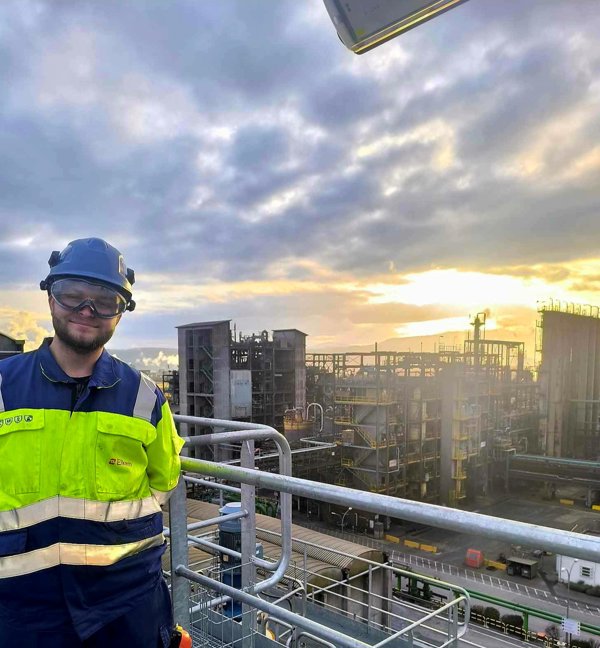- Magazine
- Trainee Blog
- From classroom to industry: My journey as an Elkem technical trainee
From classroom to industry: My journey as an Elkem technical trainee
From a final-year internship in a silicones plant to a second rotation in the Technical Trainee Programme, Lilian Rade has been exploring the silicon value chain through continuous improvement, data analysis and digitalisation.
Moving from the classroom to the heart of industrial innovation has been both exciting and humbling — and I’ve learnt a lot along the way.
First steps in the world of silicones
During my final year at university, I completed an internship at the Roussillon plant in France. This plant turns silicon metal into different types of silicone oils, which are then used in other products. My main project was to improve and update a part of the production process. This helped increased the daily capacity of this workshop while also reducing product losses.
These tasks, along with my work-study degree, marked the end of a two‑year journey across internships in three chemical plants. During this time, one thing became clear: choosing a single specialisation is not easy. Still, this mix of experiences deepened my interest in exploring new fields and piqued my curiosity about how silicon is turned into silicone.
Elkem’s Technical Trainee Programme stood out as a clear next step. The programme lasts two years and includes three different placements, which link the early stages of silicon production with the final silicone products.
Beyond observing different contexts, the programme helps you build key skills in process‑engineering essentials, such as defining problems clearly, matching data with real-life practice and communicating simply — all with the goal of building a solid foundation, with the added benefit of placement opportunities abroad.
Roussillon, France: Optimising processes
To ease the move from student to professional life, I chose Roussillon for my first rotation. Here, I worked on improving processes using the CPM method, which is a standard way to keep operations steady. I also supported digitalisation with a digital tool that makes it easier to understand data and worked on finding the best ways to spot stable production periods in different workshops.
With help from the production and technical teams, we defined the CPM scope, mapped out the steps and measurement points, and agreed on what “normal operating conditions” really mean in practice. On the data side, we consolidated historic readings from dozens of sensors, cleaned up the data, handled shutdowns and disturbances, and created simple indicators to show trends, deviations and stability. We also set up a routine: a clear standard, short weekly reviews focused on key indicators, and a concise way to make decisions.
Using the digital contextualisation tool, we built practical event timelines, added context to sensor signals, and made role‑specific dashboards for operators and engineers. As a result, it became easier to spot stable conditions, make decisions quickly, and use a shared language across teams. We also saw quick wins — less back‑and‑forth to diagnose deviations and a simpler way to respond when things went off track — all while meeting health, safety and environmental requirements.
Kristiansand, Norway: Pilot projects and predictive models
My second and current rotation is part of the Elkem Sicalo® project, which aims to reduce — or eliminate — CO₂ emissions from silicon production. I'm based at Fiskaa in Kristiansand, southern Norway, where the project is located, and the team has made me feel welcome, helping me settle in and learn quickly in this new environment.
My work is in a pilot project that is testing a new way to make materials. First, I work with experts to understand how the pilot works. Then, I look for better ways to measure and monitor things in high-temperature conditions.
Given the harsh environment, we choose measurement locations carefully to balance data quality with equipment longevity. To check our setup, we analyse old sensor data to learn from past tests and find the best places for sensors.
A key challenge is turning imperfect or inconsistent data into signals we can trust. The main goal is to obtain high‑quality information that helps people make safe decisions and supports the predictive models guiding these pilot experiments.
What have I learnt from these rotations?
- First, technical humility: What seems obvious in one field is not universal. Assumptions that work in some chemical processes do not always apply in high‑temperature furnaces.
- Second, data only makes sense when it matches what happens on the shop floor. Models are only useful when they reflect real events and align with what teams observe.
- Above all, listening, sharing experiences and learning from colleagues has been one of the most valuable parts of this journey.
A professional and personal adventure

After nearly a year in the programme, I have experienced many firsts: my first job outside a chemical‑plant environment, my first experience in research and development, my first move far away from home — and even my first flight.
It has been demanding and rewarding, made easier by the steady support of Elkem’s teams and mentors. Beyond work, discovering new cultures, tasting new food, meeting new people and taking time to enjoy nature have all been part of the learning experience.
What’s next?
I’m heading back to France to continue my exploration into the silicones value chain, this time closer to the end of it, with projects on digitalisation and technical assistance. It’s another opportunity to learn, share — and put into practice — what I have learnt with future colleagues.
I’m grateful to all the teams, mentors and colleagues I have met along the way for their guidance and support.
About Lilian Rade
 |
After earning a bachelor’s degree in chemistry with some chemical engineering, Lilian completed a master’s degree in process engineering (diplôme d’ingénieur) at ENSIC in Nancy, France. Over six years of study, Lilian undertook nearly two years of internships across France and spent six months in Germany. Lilian's first technical trainee rotation at Roussillon focused on operational stability and data-driven routines for silicones operations. Lilian is now based in Kristiansand, working on data analysis and temperature measurement within the Elkem Sicalo® project to support sustainable innovation in silicon production. |